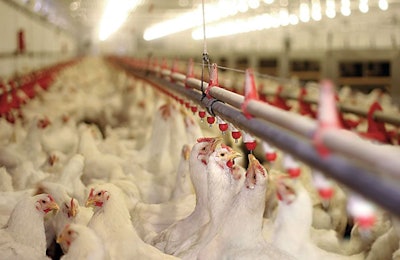
Australia’s farmers have welcomed a new bill offering them more protection from animal activists entering their premises and causing damage to property.
A new bill introduced to the House of Representatives of the Parliament of the Commonwealth of Australia this month looks set to provide better protection for farmers from trespassers.
This year has seen an increase in the number of incidents of anti-farm activism in the country, according to the National Farmers’ Federation (NFF). It says the new law would provide a strong deterrent to groups with an extremist agenda from harassing and intimidating law-abiding farmers.
The Criminal Code Amendment (Agricultural Protection) Bill 2019 was introduced to the House of Representatives as part of its first order of business, delivering on its 2019 election commitment.
“This sends a strong message to farmers, who are under pressure at the moment on a number of fronts, that the government understands how serious this issue is and is prepared to act,” said NFF president, Fiona Simson. “It also sends a strong message to those extremists who are actively rallying volunteers to go on to farms and harass and intimidate, that their antics will not be tolerated.”
The new act sets out penalties of up to five years of imprisonment for anyone who carries out damage to or theft from the property, or incites another person to do so.
A term of 12 months in jail could be imposed on anyone trespassing on agricultural land, and disrupting the farming business. An offense will be committed if the offender “transmits, makes available, publishes or otherwise distributes material” as part of the trespass, theft or damage.
The act also covers offenses carried out at any type of farming premises, as well as slaughterhouses.
There is an exemption for journalists who are working to prepare a news report in the public interest, and for whistleblowers lawfully disclosing, for example, animal cruelty.
Simson said she hoped Labor will back the legislation.
The Criminal Code Amendment (Agricultural Protection) Bill 2019 has been referred to the Senate Legal and Constitutional Legislation Committee, which is expected to report by September 6 this year, according to Lexology.
Countering activist activity
According to the NFF, the latest amendments come after an earlier move by the government to prescribe animal rights charity Aussie Farms under the Privacy Act. NFF says the activist group promotes extreme views that misrepresent farmers, and their activities amount to invasion of businesses and family homes.
Aussie Farms offers a free public repository, information center, and a toolkit for animal rights activists in Australia, according to its website. It states that it does not condone or encourage the use of this resource for illegal purposes including trespass, or for any use contrary to its core values, the first of which is its belief “in the rights of non-human animals to not be exploited, owned, abused, or killed for human purposes.”
In January 2019, the group published an online map and contact details of thousands of farmers, reported the Australian Broadcasting Corporation (ABC).
The information represented an “attack list” for activists, according to Federal Agriculture Minister, David Littleproud, who requested that Aussie Farms take down its website. Executive director of the group denied it was encouraging trespass, and said contact details would be removed “on request.”
Activism against poultry and livestock producers is not confined to Australia.
At the 2019 Chicken Marketing Summit in the U.S., a company executive will urge producers and those in the food industry to tell their own story in order to counter the misinformation perpetrated by animal activist groups.
Among the tactics used by animal rights groups are undercover employment/videos, break-ins, theft, protests, “mass open rescues,” and the application of pressure on restaurants and retailers, according to the Animal Agriculture Alliance in the U.S., which also offers practical advice to farmers how to protect their businesses.















